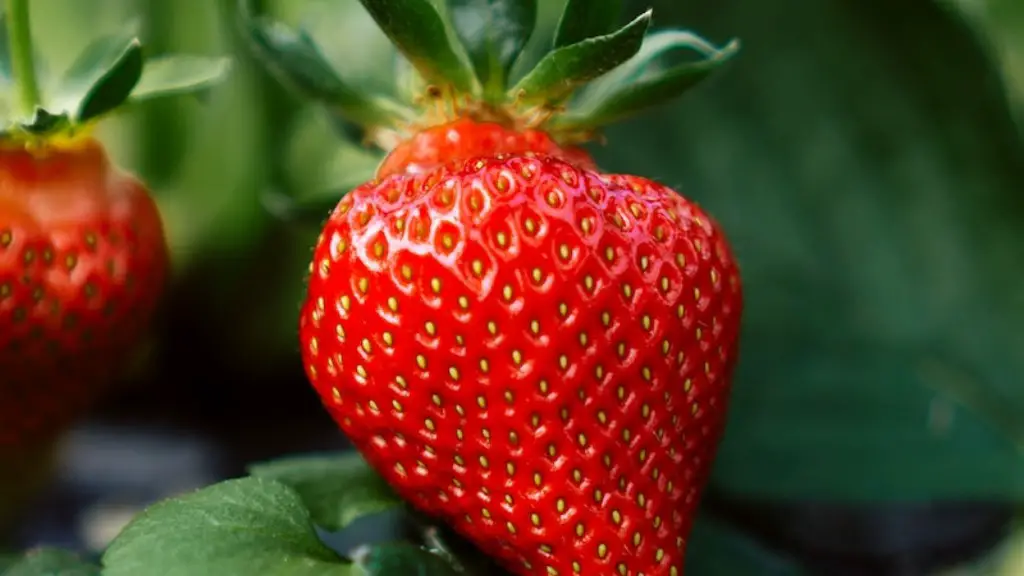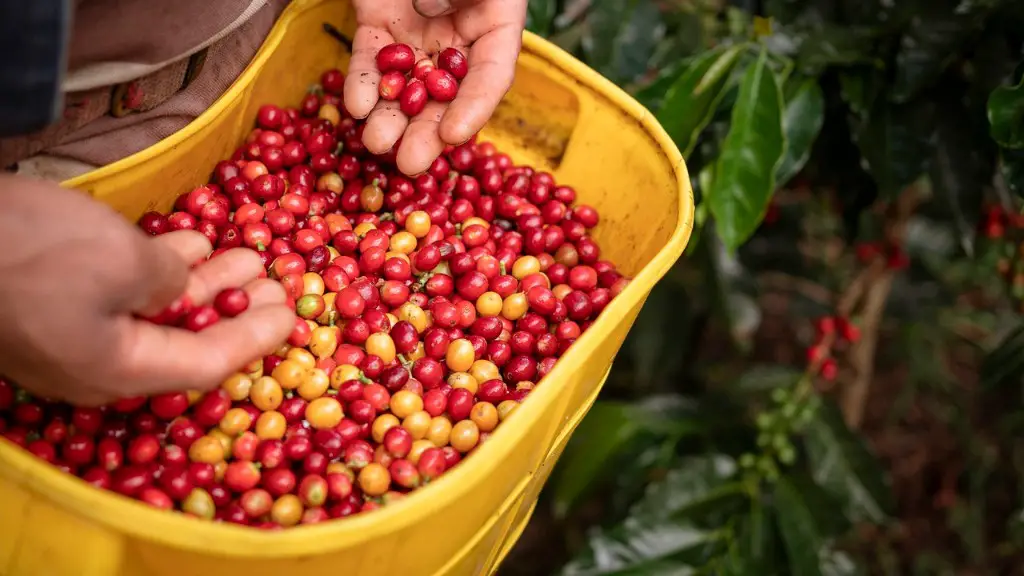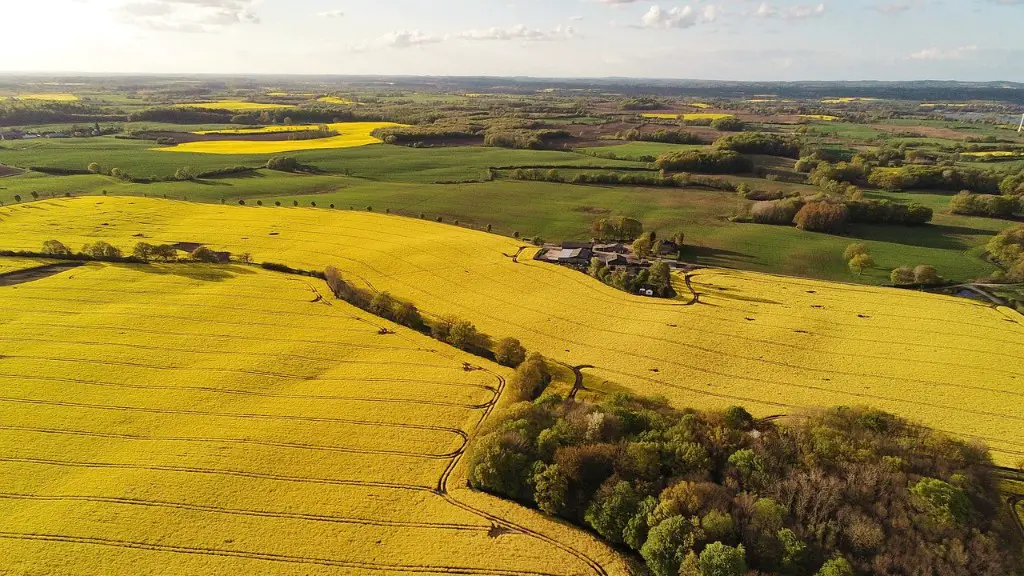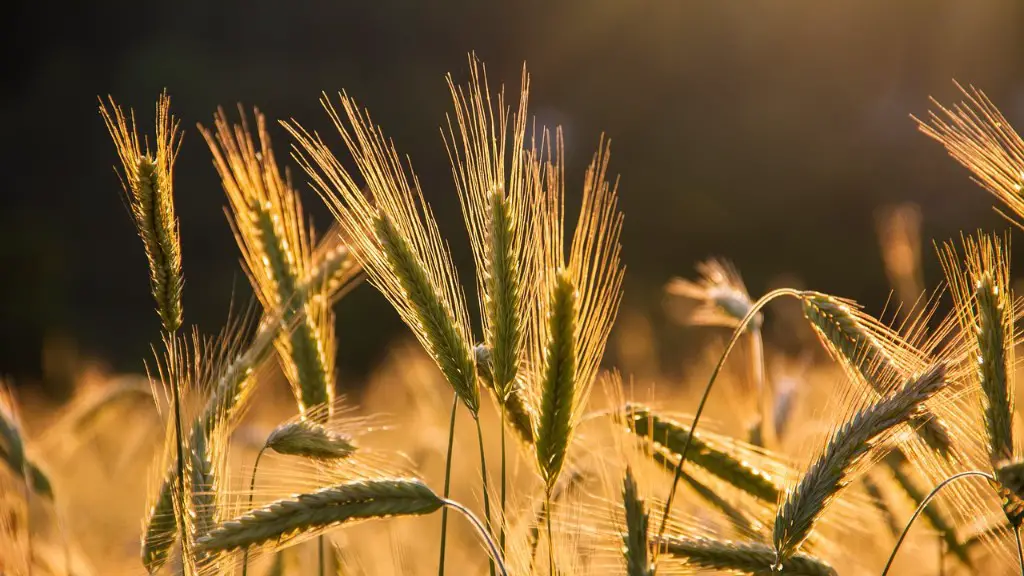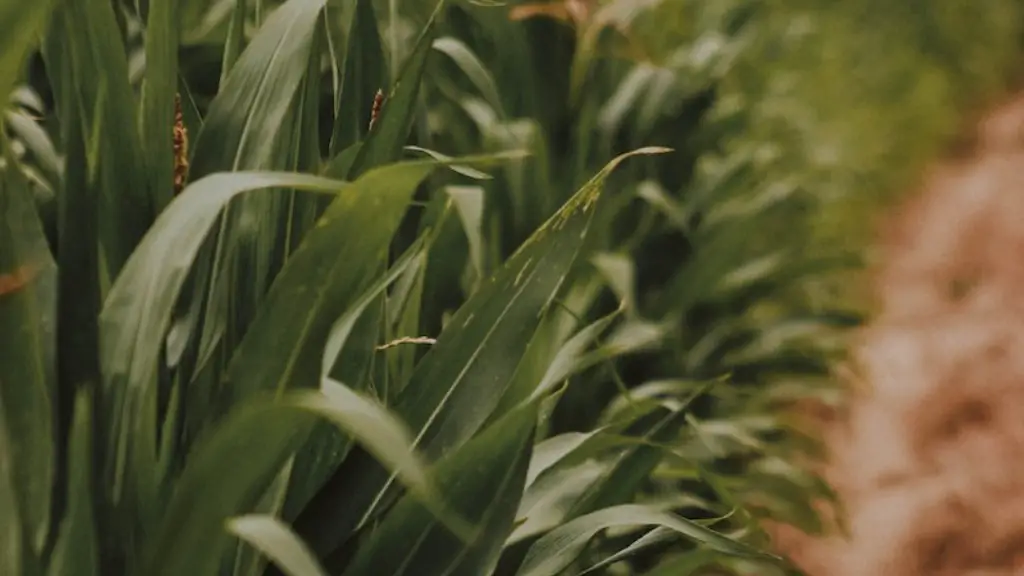Agriculture can have a positive or negative impact on biodiversity. It all depends on how it is managed. If agriculture is managed in a way that is sustainable, then it can have a positive impact on biodiversity. This is because sustainable agriculture practices help to conserve and restore natural ecosystems. These practices also help to reduce the use of harmful pesticides and fertilizers. However, if agriculture is not managed in a sustainable way, then it can have a negative impact on biodiversity. This is because unsustainable practices can lead to habitat destruction, soil erosion, and water pollution.
Agriculture can have a negative impact on biodiversity. It can lead to habitat loss and fragmentation, as well as the alteration and destruction of natural ecosystems. This can result in the decline of populations of plants and animals, and can ultimately lead to species extinctions. Agriculture can also have a negative impact on biodiversity through the introduction of invasive species, as well as the use of chemicals and other pollutants.
How does Agricultural affect biodiversity?
Agriculture is one of the leading causes of biodiversity loss around the world. Natural habitats are being converted to farms and pastures, pesticides and fertilizers are polluting the environment, and soils are being degraded. These impacts are having devastating consequences for the planet and its wildlife.
Agricultural biodiversity is essential for food and livelihood security. It provides a variety of plant and animals from domesticated and wild sources, which contribute directly to food security, nutrition and well-being. Biodiversity, food and nutrition interact on a number of key issues, and it is important to consider all three in order to ensure a sustainable and secure food supply.
How animal agriculture has contributed to a loss of biodiversity
Animal agriculture is driving biodiversity loss in a number of ways. First, it is a leading cause of climate change. Second, it contributes to soil loss and water and nutrient pollution. Third, it decreases populations of apex predators and wild herbivores, putting additional pressure on ecosystems. Finally, it creates demand for land and resources that could be used to support biodiversity, but is instead used to support livestock production. In sum, animal agriculture is a major threat to biodiversity and the health of our planet.
Agriculture is the leading source of pollution in many countries. Pesticides, fertilizers and other toxic farm chemicals can poison fresh water, marine ecosystems, air and soil. They also can remain in the environment for generations.
How much does agriculture contribute to biodiversity loss?
According to the ‘Red List’ maintained by the International Union for Conservation of Nature (IUCN), agriculture is an identified threat to 24,000 of the 28,000 species so far documented by IUCN as at risk of extinction. In marine ecosystems, fishing is the largest driver of biodiversity loss.
Biodiversity is critical to sustaining the agricultural ecosystem. Without a variety of micro-organisms, plants, and animals, the agricultural ecosystem would not be able to function properly. The given biodiversity is the bottom line that maintains the sustainable creation of agricultural products.
What is the main impact of agriculture?
Agriculture plays a vital role in every society. It provides food for people to eat, raw materials for products, and jobs to support livelihoods. It also helps to build strong economies through trade.
Agriculture has a significant environmental impact in three key ways. First, it requires large amounts of fresh water, which can cause significant environmental pressures in regions with water stress. It needs water as input and pollutes rivers, lakes, and oceans by releasing nutrients. Second, the excessive use of herbicides and pesticides can lead to serious pollution problems. Agricultural chemicals can contaminate ground and surface waters, and they can also enter the food chain and bioaccumulate in humans and animals. Third, livestock farming can generate considerable methane emissions – a powerful greenhouse gas – through enteric fermentation and manure management. When it comes to climate change, agriculture is both a significant contributor and a potential victim.
What are five environmental effects of agriculture
The five main environmental effects of agriculture are soil fertility loss, eutrophication of water bodies, deforestation, climate change and pesticide pollution.
Soil fertility loss occurs when the nutrients in the soil are used up faster than they can be replaced. This can lead to a decline in crop yields and eventually to soil erosion.
Eutrophication of water bodies occurs when excessive amounts of nutrients are released into the water, leading to an increase in algae growth. This can lead to the depletion of oxygen in the water, killing fish and other aquatic organisms.
Deforestation occurs when trees are cleared to make way for agricultural land. This can lead to soil erosion, loss of habitat for wildlife, and climate change.
Climate change is caused by the release of greenhouse gases into the atmosphere. These gases trap heat, causing the Earth’s temperature to rise. This can lead to extreme weather conditions, loss of crop yields, and extinction of plant and animal species.
Pesticide pollution occurs when chemicals used to kill pests are released into the environment. These chemicals can pollute the air, water, and soil, and can kill beneficial insects, birds, and other animals.
Agriculture is the main source of raw materials for many industries, making it an important part of international trade. It also plays a big role in a nation’s revenue, providing employment and helping to develop a country. Additionally, agriculture can help heal the environment and goes hand-in-hand with war.
What are 3 importance of agriculture?
Agriculture plays a vital role in creating the enabling environment for biodiversity. The increase in biodiversity will lead to healthier soil, less erosion, better water conservation, and healthier pollinators. All of these factors contribute to a healthier environment and a more sustainable agriculture system.
There is a lot of debate about the best way to increase food production without harming the environment. One method that is often mentioned is intensifying agriculture and using more nitrogen-based fertilisers. However, this approach has its own set of environmental problems.
Nitrous oxide emissions from nitrogen-based fertilisers contribute to climate change, and intensive agriculture can also lead to the release of nitrates to the soil and water bodies. This can cause pollution and harm to ecosystems. Therefore, it is important to consider all the potential environmental impacts before intensifying agriculture and using more nitrogen-based fertilisers.
What is a negative impact on agriculture
Soils and land degradation are a major environmental problem globally. The degradation of land and soil is one of the most serious negative effects of agriculture on the environment. It significantly endangers agricultural sustainability and increases water and soil erosion during rains and flowing waters.
Negative impacts from agriculture can be significant, but the industry can also have positive environmental effects. Greenhouse gases can be trapped within crops and soils, for instance, or flood risks can be mitigated through certain farming practices. With proper management, agriculture can be a force for good in the fight against climate change.
How does agriculture positively affect the environment?
Sustainable agriculture is not only important for preserving the earth’s natural resources, but also for the environment as a whole. Sustainable agriculture helps to maintain soil quality, reduce erosion, and preserve water. All of these things are vital to the health of the planet and the people who live on it.
Food production is a significant contributor to environmental problems. The main problems are water use and water pollution, greenhouse gas emissions, environmental contaminants and pollutants, depletion of natural resources, and waste.
Water use is a major issue in food production. It takes a lot of water to grow food, and this can lead to water shortages and water pollution.
Greenhouse gas emissions from food production are a significant contributor to climate change. Food production emits methane and carbon dioxide, which are both greenhouse gases.
Environmental contaminants and pollutants from food production can include pesticides, herbicides, and fertilizers. These can pollute the air, water, and soil, and can be harmful to human health.
Depletion of natural resources is another environmental problem caused by food production. This includes the loss of forests, soil, and water.
Waste from food production is a significant contributor to landfill problems. This includes packaging, food waste, and agricultural waste.
Final Words
Agriculture has both positive and negative impacts on biodiversity. The conversion of natural habitats to farmland reduces the amount of habitat available for species, while the use of pesticides and herbicides can kill off both target and non-target species. Some agricultural practices, such as organic farming, can help to promote biodiversity by providing habitat and food for wildlife.
The loss of biodiversity is a major problem for agriculture. The more we convert natural habitats to agricultural land, the more we lose the animals, plants, and other organisms that make up our planet’s valuable biodiversity. This loss of biodiversity can have serious consequences for agriculture, including making it more difficult to control pests and diseases, as well as reducing the productivity of crops. To ensure the long-term sustainability of agriculture, it is essential that we take steps to protect and conserve biodiversity.
